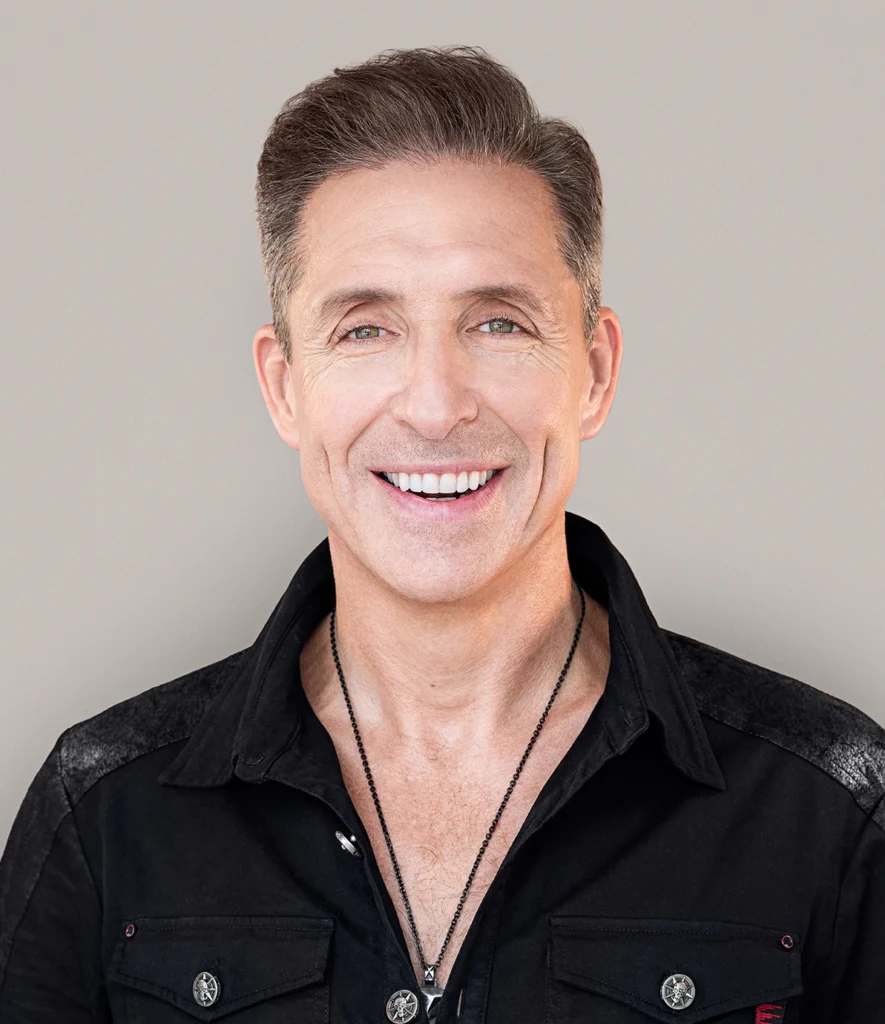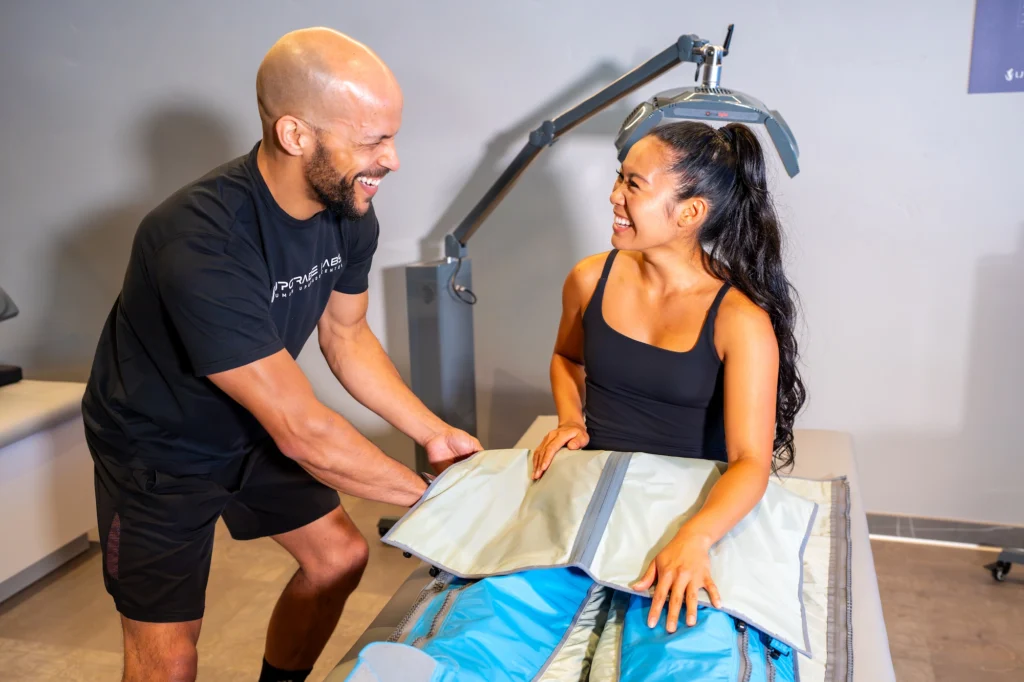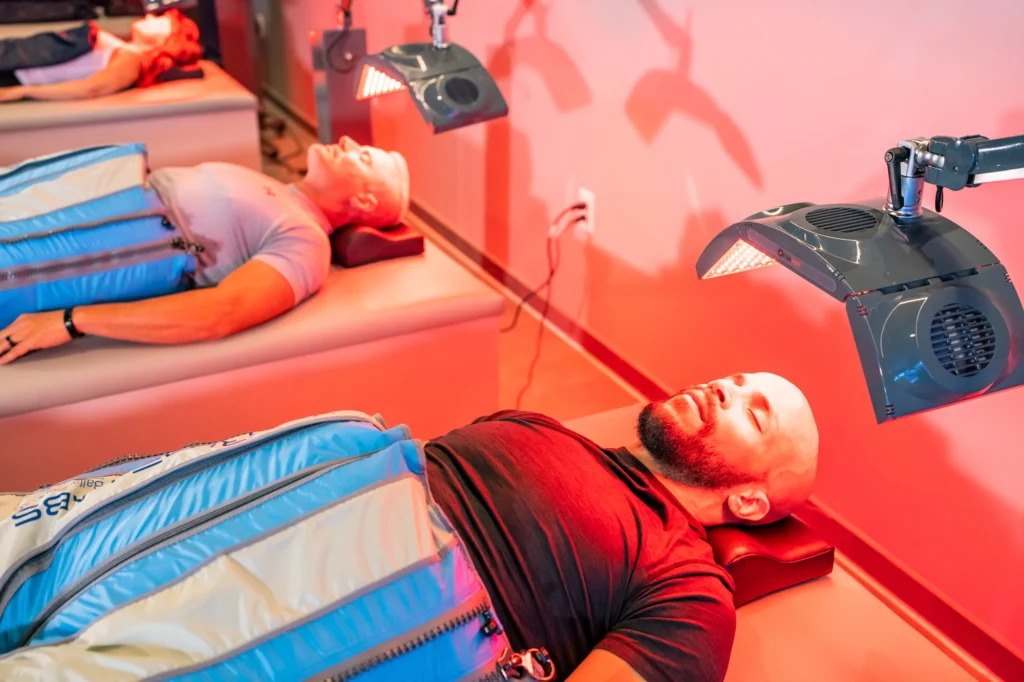
The self-proclaimed “father of biohacking,” Asprey likens the evolution of longevity science to technological advancements like cars and cell phones, which started out as pie-in-the-sky ideals
Longevity is having a moment, attracting investors, social media influencers and members of the general public alike, all of whom are drawn to the idea that humans can live better for longer.
For Dave Asprey, it’s about time.
The self-proclaimed “father of biohacking,” Asprey divides opinion like few others in the fast-growing longevity movement. To his legions of social media followers, the Bulletproof Coffee founder and New York Times bestselling author is a modern-day prophet, disseminating the secrets of a world where humans can leverage science, nutrition and tech to live their best lives.
To his detractors, Asprey represents much of what’s wrong with modern-day “wellness,” promoting products backed by questionable science and making dubious claims about what it’s possible to achieve through self-improvement.
As usual, the truth probably lies somewhere in the middle.
Athletech News caught up with Asprey at the recent Eudemonia summit to get his take on the future of the longevity movement and his plans for Upgrade Labs, a biohacking and recovery franchise he launched in 2017.
A Case for the Future of Longevity
According to Asprey, a lot of the confusion about longevity and biohacking stems from a fundamental misunderstanding about the origins of the movement and the long-term goals of its practitioners.
“Biohacking is the art and science of changing the environment around you and inside of you so you have control of your own biology,” he explains. “Control of your biology can mean you want to live longer, it can mean you want to be (mentally) smarter and faster and remember everything, it can mean you want more muscle. … These are all things that are tunable in the human body.”
Asprey says he championed the term “biohacking” as a more approachable entry point into the wider field of longevity, which is essentially the science of aging gracefully, or slowing down the aging process altogether.
“I’ve been in the longevity field for 25 years, and part of starting the biohacking movement was to normalize longevity and to prepare society for this idea that it’s okay to ask for more than just health,” he says. “No one wakes up in the morning and says, ‘God, I just want health today,’ unless they’re really sick. We want to feel amazing.”

If some of Asprey’s marketing tactics come across as brash or even over the top, there’s a method to the madness, he assures.
“I’m including the language that makes it so I would have wanted to pay attention when I was 19,” he says, adding that biohacking “started as a new idea that would make longevity accessible and interesting for people who weren’t already old.”
To the movement’s skeptics – and there are many in mainstream science and medicine – Asprey likens the evolution of longevity science to technological advancements like cars and cell phones, which started out as pie-in-the-sky ideals, and expensive ones at that.
Businesspeople and influencers like Bryan Johnson spending millions to defy death with advanced biohacking protocols could be laying the groundwork for a future where the average person can do so for a fraction of that cost.
“The first automobiles were pieces of crap compared to a car, and people with too much money bought them until we had cars that worked really well,” Asprey says. “Longevity is just at the same phase of every technology application where people spend a lot of money on stuff that doesn’t work very well, then they show it can be done … and then it goes down in cost. “
“You should be grateful that the 1% are wasting a bunch of money on this,” he adds.
Can Upgrade Labs Democratize Longevity?
The day when working-class Americans have access to the same health-optimizing tools as millionaires might be closer than you think.
In 2017, Asprey created Upgrade Labs, which brands itself as the world’s first biohacking and recovery facility. Asprey also calls it a “human upgrade center,” a term he says is trademarked.
Inside an Upgrade Labs facility, members can find everything from red light therapy beds to an “AI Cheat Machine,” a digital strength training system that leverages artificial intelligence to mimic the effects of an hour-long weightlifting session in only 10-15 minutes. Other pieces of equipment include cryotherapy booths, whole-body vibration plates, oxygen trainers and full-body lymphatic detox massage systems.

According to Asprey, a typical Upgrade Labs session consists of a quick bout of intense exercise on advanced machinery, followed by some type of recovery treatment. Some sessions can be entirely recovery-focused to avoid the negative effects of overtraining.
“20% or less of what you do is going to be stimulation and 80% is going to be recovery,” he explains. “To put on muscle really quickly, you need quick stimulation, and then the body has to have proper minerals, enough protein and a feeling of safety and recovery. We use technologies to drive recovery beyond what’s possible in mother nature.”
Memberships cost on average between $300 and $500 per month, and the typical member visits an Upgrade Labs facility two to three times per week, with sessions lasting 20 or 40 minutes. That’s more than enough time to build muscle, lose weight and generally feel much better, Asprey argues.
“Every minute you spend at Upgrade Labs should provide a huge return,” he says.
For an added layer of personalization (and an additional fee), members can purchase blood test kits that measure over 100 biomarkers. Based on the test results, Upgrade Labs designs specific protocols for how members can improve any lagging markers, such as adding more red light therapy or going for a walk after eating.

Asprey doesn’t have a medical degree, and doctors aren’t included at any point in the Upgrade Labs process.
“Everything we do is non-medical, even the lab tests, you never talk to a doctor. We let you order them without a permission slip,” Asprey says, arguing that many people find it overly burdensome to obtain bloodwork from their primary care doctor without an illness.
“If you want to talk to a doctor, you can. … We’re not treating or diagnosing anything other than your life sucks and you want more energy, you want muscles and you want to control your biology,” he adds.
Upgrade Labs currently has eight studios in cities across the United States and Canada. The brand has another 32 franchise licenses sold, so more facilities should be opening their doors soon.
In five years, Asprey believes there will be “hundreds” of Upgrade Labs facilities open in North America thanks to a growing demand for longevity and a strong franchise sales pipeline. While other brands have cropped up in recent years offering similar longevity and biohacking services, Asprety believes his concept has the first-mover advantage.
“Anyone could buy a sauna and a cold plunge and open a biohacking center and go for it,” he says. “But the problem is, no one knows the recipe. We’ve got the recipe, and it’s different for every person.”
